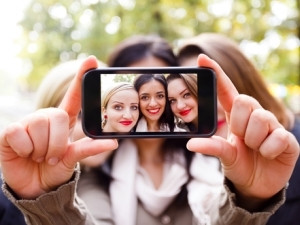
A new study by researchers in the Department of Psychology at the University of York has shown first impressions based on everyday images, such as those found on social media, can be accurately predicted.
The study found that photo selection for avatars or profile photos can make, or break, the first impression that others have when meeting people online. In a statement, the university says the impression created through avatars or selfies is increasingly important in a world where people increasingly get to know one another online rather than in the flesh.
It explains people form judgements about character when they look at pictures of faces. This includes whether they are friendly, trustworthy or competent. "Even though it is not clear how accurate they are, these first impressions can influence our subsequent behaviour."
Analysing faces
Previous research has shown many different judgements can be boiled down to three distinct dimensions: approachability (do they want to help or harm me?), dominance (can they help or harm me?) and youthful-attractiveness (perhaps representing whether the person would be a good romantic partner - or a rival), the university notes.
To investigate the basis for these judgements, the research team took ordinary photographs from the Web and analysed physical features of the faces to develop a model that could accurately predict first impressions.
Each of 1 000 faces was described in terms of 65 different features such as eye height and eyebrow width. It says, by combining these measures, the model could explain more than half of the variation in human raters' social judgements of the same faces.
Choose wisely
The study, published in Proceedings of the National Academy of Science, shows how important faces and specific images of faces can be in creating a favourable or unfavourable first impression. It provides scientific insight into the processes that underlie these judgements and, perhaps, into the instinctive expertise of people such as casting directors, portrait photographers, picture editors and animators who create and manipulate these impressions professionally.
Richard Vernon, a PhD student who was part of the research team, says "showing that even supposedly arbitrary features in a face can influence people's perceptions suggests that careful choice of a photo could make (or break) others' first impressions of you".
Reversing the process, it was also possible to create new cartoon-like faces that produced predictable first impressions in a new set of judges, the study says. These images also illustrate the features that are associated with particular social judgements, it adds.
The research is now moving to how the first impressions might change depending on different cultural or gender groups of perceivers or faces.